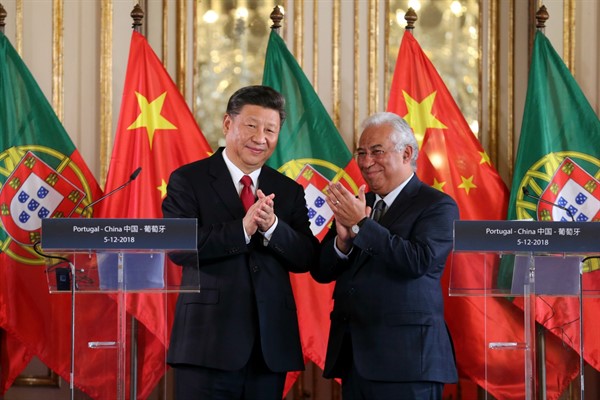Jutting into the Atlantic Ocean 65 miles south of Lisbon, Portugal’s Sines peninsula has long been recognized by foreign powers for its geostrategic importance. The Romans, Visigoths and Moors all established settlements alongside the natural deepwater port. Today, however, plans to redevelop the port have become the latest source of friction between the U.S. and China, suggesting that Portugal’s diplomatic strategy of courting both rivals is running out of runway.
Sines is the closest port in mainland Europe to America’s eastern shale basins. U.S. firms want to expand the port’s liquid natural gas terminal in order to increase gas exports to the continent, which would also help reduce the European Union’s energy dependence on Russia. In 2018, George Glass, the U.S. ambassador to Portugal, said that the proposed American investment in Sines would convert Portugal into “the Singapore of Western Europe.”
But Beijing has its own plans for Sines. A proposed €640 million Chinese-built container port there is a key project in China’s Belt & Road Initiative, the global infrastructure program of which Portugal became a member in December 2018.

